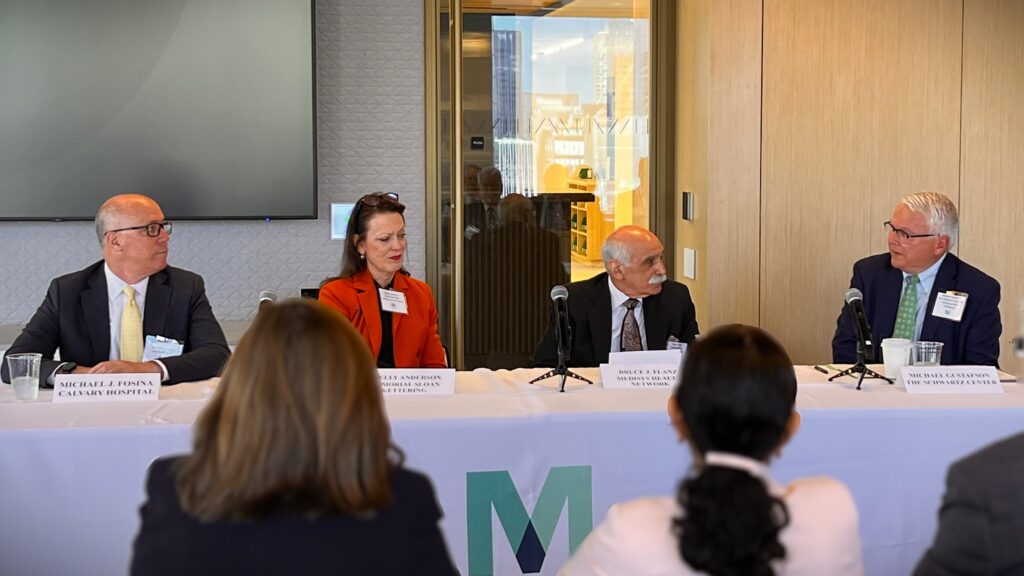
Safeguarding Compassion Improves Care, Says Calvary Hospital President Michael J. Fosina
By: The Good Newsroom
Schwartz Rounds are regular forums where healthcare staff from all disciplines come together to reflect on and discuss the emotional and social challenges of caring for patients, and foster empathy, support, and improved well-being among colleagues

THE BRONX — “The sustained health of all caregivers – nurses, doctors, social workers, every professional in healthcare as well as every family caregiver – is paramount to providing compassionate patient care,” said Calvary Hospital President Michael J. Fosina, MPH, FACHE, at a roundtable of New York City healthcare executives conducted by The Schwartz Center for Compassionate Healthcare on June 3.
“Their well-being leads to improved experiences for patients, families, and everyone involved,” said Fosina. Joined by Shelly Anderson, Memorial Sloan Kettering Cancer Center president, and Bruce J. Flanz, president and CEO of MediSys Health Network, Fosina said Calvary professionals rely on emotional support from each other and the organization to deliver Calvary’s mission.
“When our staff receive support from leadership with programs like Schwartz Rounds, it raises up what we’re doing, and it helps us in every way. My role is to make sure that all staff has the capacity and resources they need to take care of every patient and family member,” added Fosina.
Schwartz Rounds are regular forums where healthcare staff from all disciplines come together to reflect on and discuss the emotional and social challenges of caring for patients, and foster empathy, support, and improved well-being among colleagues.
“At Calvary, where we specialize in end-of-life care, we value well-being, empathy, and shared purpose among staff. That’s why we’ve been able to provide compassionate, dignified care to patients and families throughout New York for over 125 years. By acknowledging and prioritizing the emotional wellbeing of care providers, we’re able to ensure continuous compassionate care,” he said.
“Nothing replaces human connection. When we are compassionate to the people providing the care, and work with them to prioritize their wellbeing, we ensure that compassion always remains at the heart of care,” he said.
The Schwartz Center regularly convenes caregivers, policymakers, educators, and researchers to discuss current issues that affect the patient-caregiver relationship and the healthcare system’s capacity to provide compassionate care. Visit the Schwartz Center for more information about its programs and services and to learn more about the panel discussion.

